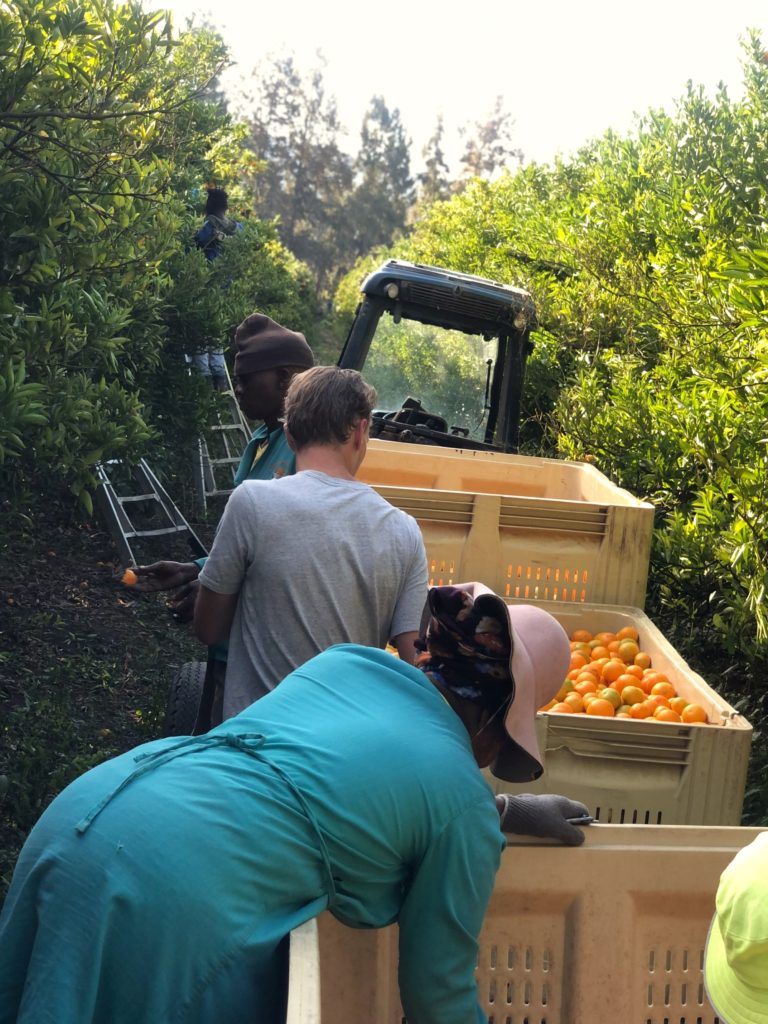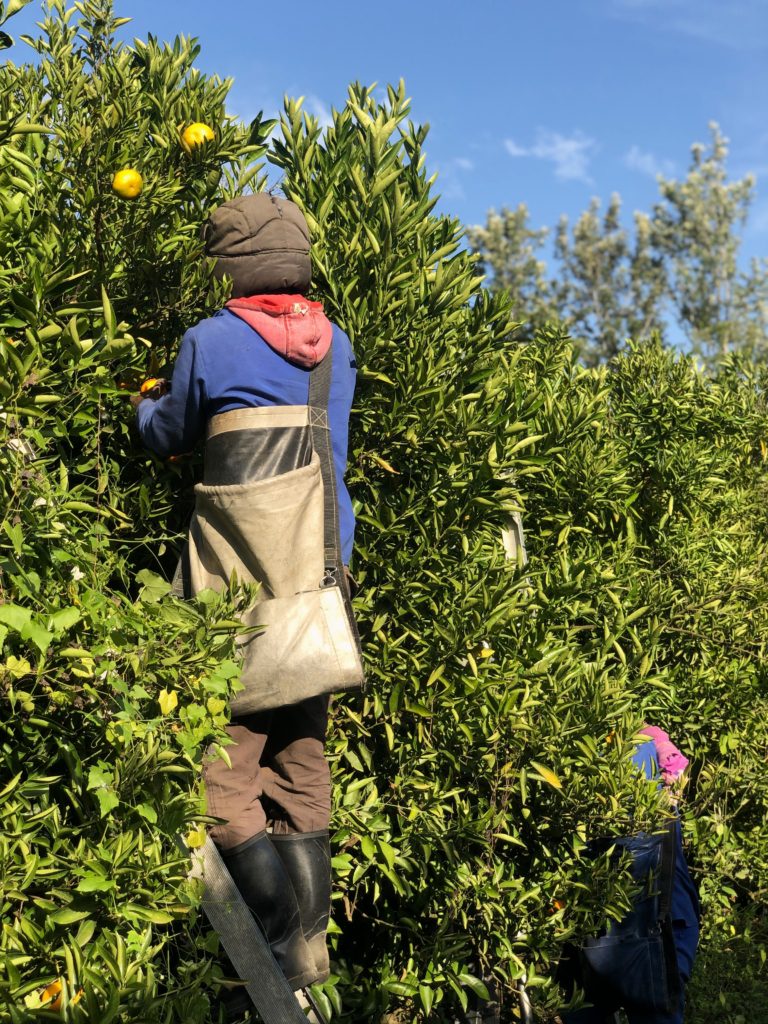Tracing the juiciest lemons in the world
Join Total Produce B.V.* and Fairfood for our first traceability project in the citrus world. Fairfood’s project manager Josje Spierings reports from the field on how a new solution is taking shape in the South African citrus industry.
*As per 01-01-2023 Total Produce B.V. changed names and re-branded to Dole Europe B.V.
The landscape changes dramatically from the airport in the South African city of Gqeberha (commonly known as Port Elizabeth) as we drive an hour north until we are completely surrounded by citrus trees. This is the Sundays River Valley, the country’s main lemon-growing region and one of the world’s largest lemon suppliers.
‘The juiciest in the world’ is how proud locals introduce their lemons. They say their lemons have so much juice due to the hard work and dedication of the growers, the quality of the soil, and the impressive amount of sun that shines in the valley.
Picture it: A valley 80 kilometres long and close to 40 kilometres wide, and citrus plantations as far as the eye can see. Besides lemon trees, the region is home to around 70,000 people; the citrus industry is the primary employer. Last year alone, exports from the valley jumped from 15 million boxes to 31 million, with an expectation to reach 45 million boxes by 2030.
Along with the fresh produce importer, Total Produce B.V., Fairfood is working to make this supply chain transparent. For that, we brought in the Sunday River Citrus Company, the largest packer and exporter of citrus in the Valley, to trace lemons from the valley as they make their journey through the supply chain.


A deeper dive through traceability
“It can be both a blessing and a curse” says Grant Hancock, supervisor of The Sunday Valley River Collaborative (SRVC), referring to the dependency of local communities on the citrus industry. This independent organisation was created 3 years ago by local growers and the communities in the valley to support inclusive community development. The citrus industry faces pressure from numerous angles. Many are familiar to other major food producers: a lack of shipping containers, exorbitant fuel (worsened by the Russian war), and the rising cost of living that affects an already impoverished community.
Fairfood stepped in to help Total Produce B.V. explore the main drivers of poverty with the help of traceability. As a seasonal industry, the citrus sector offers many jobs, most of them when fruit needs to be picked and packed. Other work opportunities are scarce in the community, which leads to high unemployment, unreliable sources of income and challenging living conditions.
Can we create more opportunities for people outside the harvest season? Grant believes that fostering economic diversification starts with greater access to good education and practical skills for temporary citrus workers. Lennart Visser, marketing and sustainability manager at Total Produce B.V., agrees. Being part of the world’s largest fresh produce importers, they understand the importance of a stable, sustainable chain to rely on.
In a big country like South Africa, Lennart tells me, working north or south means dealing with completely different challenges. Traceability and an in-depth understanding of the lemon supply chain can help Total Produce B.V. better connect the community and the industry, while also making the link from field to consumers’ tables.
Telling a new story
The Sunday Valley River Collaborative is our thermometer for measuring impact in the communities. Funded by citrus growers and supported by local authorities to spur economic development, the collaborative sees an opportunity to address disparities in South Africa through the citrus industry.
Today, team leaders are in charge of different communities’ needs. Think of education, safety, transport and health care – each leader, often selected from within the community, oversees the topic and seeks out investment and opportunities. By helping to fill in the skills gaps that prevent temporary workers from thriving in the citrus industry, they help get civil society, government, and the citrus sector on the same page.
With the help of the Sunday River Citrus Company, Total Produce B.V. will soon be part of this unique process. Alongside the process of onboarding farmers to Fairfood’s traceability platform, Trace, Total Produce B.V. will begin redistributing profits from the sale of lemons directly to the community. Working together in the field builds the business case for investing in transparency, by demonstrating how companies and communities benefit from improving conditions on the ground.
The community is coming together to address their challenges. That’s the story powered by traceability. We will soon share this story with all stakeholders involved with lemons from the Sunday River Valley, from retailers to consumers.
The ambition from the start has been to scale this idea up. As Total Produce B.V. commits to supporting local communities with a profit margin redistribution, Lennart hopes to see other partners in the value chain jump on board.
“What if we can move from one lemon supplier on the Trace platform, to 10 suppliers? It would be great to have more retailers with us from day one, so we can all reach a share that makes sense to all chain partners,” Lennart said.
Good news? We already have a supermarket on board to make sure the story behind South African lemons reaches European consumers. Stay tuned!


